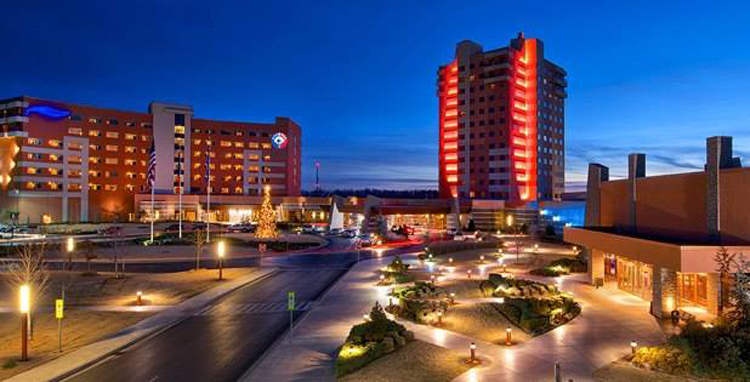Kansas Attorney General Derek Schmidt and the Cherokee County Commission filed notice this week in U.S. District Court in Topeka that they would appeal a federal judge’s dismissal of their lawsuit that challenges the Quapaw Tribe’s plan to expand its Downstream Casino Resort into Kansas.
In a 38-page decision last month Judge Daniel Crabtree wrote that a review of an advisory opinion by National Indian Gaming Commission (NIGC) attorneys that could allow casino gaming on sovereign land in Cherokee County was beyond the court’s reach. Crabtree wrote that the legal threshold to challenge was not met by Cherokee County because it was not a “final agency action” by the National Indian Gaming Commission, according to the Joplin Globe. The judge also said tribal immunity against lawsuits had not been waived by the tribe.
Sally Jewell, U.S. Secretary of the Interior, as well as 22 other federal and Quapaw officials, including the tribe’s chairman, John Berrey, were named in the March 9th civil filing of State of Kansas vs. National Indian Gaming Commission et al. Berrey has stated that the tribe was asked by Kansas Gov. Sam Brownback to request the opinion from the NIGC as part of the Quapaw’s effort to negotiate an agreement that would allow casino gambling on the tribe’s land in Kansas.
Most of the Quapaw’s tribal land in Kansas was surrendered by the tribe in an 1867 treaty, but in 2006 and 2007 it bought back 124 acres that the Bureau of Indian Affairs then placed the land in trust in 2012. That is where the Quapaw is planning a $15 million expansion of its Downstream Casino Resort. While newly acquired lands normally can’t be used for gaming, in November 2014 an NIGC attorney said that the land held in trust in Kansas falls within the tribes “last recognized reservation,” which makes it eligible under the Indian Gaming Regulatory Act’s Section 20. The 10th Circuit favored the Wyandotte Nation in the last major Section 20 case (Wyandotte Nation v. Sebelius), which locked the tribe, the State of Kansas, and the United States in litigation for over 10 years over a parcel of land also in Kansas, known as the Shriner Tract.
Meanwhile, in July, a license was awarded by state regulators enabling the construction of a state-owned casino in nearby Crawford County, the Kansas Crossing Casino and Hotel. However, construction of that facility is on hold due to a different suit filed by Cherokee County and representatives for the Castle Rock Casino Resort who want to build their casino in Cherokee County just one mile north of I-44 right on US400.



